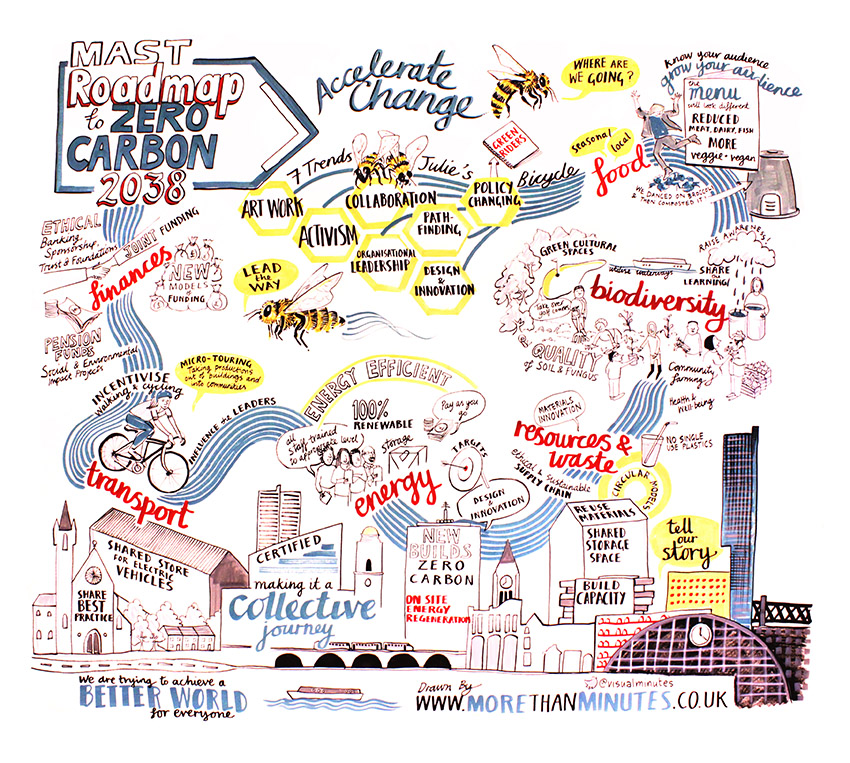Seven European cities are leveraging the power of the arts and culture to teach people about climate change and what they can do to help.
Using the arts to engage with people about climate change
- 11 August 2020
Culture is in Manchester’s DNA. We understand the value that culture brings to our well-being, prosperity, and vitality as a city. The arts and culture sector has a well-recognised part to play in contributing to all city priorities.
Responsible for producing over 70 % of the world’s greenhouse gas emissions, cities are a major factor in rising temperatures. If Europe is to meet its 2030 climate change goal of reducing greenhouse gas emissions by 40 % compared with 1990 levels, it must make its cities more sustainable.
As an URBACT Transfer Network project, C-Change is helping six high carbon-producing cities mobilise the arts and culture sectors as another front in the fight against climate change. The result is an average CO2 reduction of 7 % per year.
Building from MAST
C-Change takes its inspiration from the Manchester Arts Sustainability Team (MAST) – a network of nearly 30 arts and cultural organisations actively contributing to the city’s climate change strategy and targets. The network focuses on how cities can use the arts to better engage with citizens about climate change.
MAST has become one of Manchester’s – if not the UK’s – most successful examples of environmental collaboration. Manchester aims to become a zero-carbon city by 2038, 12 years earlier than the national target of 2050.
Now, the C-Change project aims to replicate this success in Wrocław (Poland), Mantova (Italy), Gelsenkirchen (Germany), Šibenik (Croatia), and Águeda (Portugal). Not only are all these cities experiencing the impact of climate change – together, they produce about 9 million tonnes of CO2 – they also share a commitment to art, culture, and creativity.
Sharing best practice
The six participating cities are learning from, and building on, Manchester’s success with cultural collaboration on climate. They are sharing best practices in how to use the power of arts and culture to teach people about climate change and what they can do to help.
The project is providing carbon literacy training. This is built on the principle that residents who understand the carbon impact of their daily actions can make informed decisions about the most energy and resource efficient options available to them, highlighting the need for a substantial change in mindset and behaviour.
In addition to this work with citizens, the project engages local authorities in developing climate policies. For example, in Mantova, city employees recently completed their first carbon literacy training. Participants included five civil servants from various departments, and 25 people from other sectors of society.
A unique approach
C-Change’s unique approach to mitigating climate change has proven effective. In less than two years, Manchester has seen a 7 % reduction in CO2 emissions. As a result, project organisers are expanding the strategy to other cities.
The project was implemented as part of URBACT, the European Territorial Cooperation programme that aims to foster sustainable integrated urban development in cities across Europe. It uses resources and know-how to strengthen cities’ capacity to make improvements in four areas: governance, environment, inclusion and economy.
Total investment and EU funding
Total investment for the project “C-Change Network” is EUR 600 000 with the EU’s European Regional Development Fund contributing EUR 449 234 through the “URBACT III” Operational Programme for the 2014-2020 programming period. The investment falls under the priorities “Democratic Change” and “Energy Union and Climate”.

